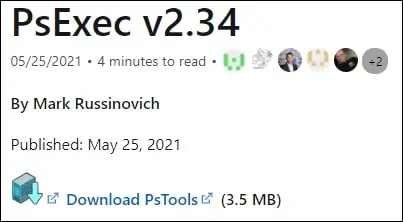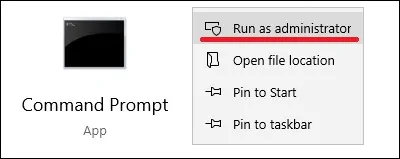Would you like to learn how to use the PSEXEC command? In this tutorial, we are going to have multiple examples showing how to use the PSEXEC command on a computer running Windows.
• Windows 2012 R2
• Windows 2016
• Windows 2019
• Windows 10
• Windows 7
Equipment list
The following section presents the list of equipment used to create this tutorial.
As an Amazon Associate, I earn from qualifying purchases.
Windows Related Tutorial:
On this page, we offer quick access to a list of tutorials related to Windows.
Tutorial Psexec - Starting a local command prompt.
Download and extract the application named PSEXEC.

In our example, this is the path to the PSEXEC command.
As an Administrator, start an elevated command line.

Access the application directory.
Start a command-line as another user.
Start a command-line as administrator.
Start a command-line as NT AUTHORITY SYSTEM.
In our example, we used the PSEXEC application to start a local command line.
Tutorial Psexec - Starting a remote command prompt.
As an Administrator, start an elevated command line.

Access the application directory.
Start a remote command-line as another user.
Start a remote command-line as administrator.
Start a remote command-line as NT AUTHORITY SYSTEM.
In our example, we used the PSEXEC application to start a remote command line.
Tutorial Psexec - Run a local command
As an Administrator, start an elevated command line.

Access the application directory.
Run a command as a different user.
Run a command as administrator.
Start a command as NT AUTHORITY SYSTEM.
Run multiple commands using Psexec.
Run a BATCH script using Psexec.
In our example, we used the PSEXEC application to run local commands.
Tutorial Psexec - Run a remote command
As an Administrator, start an elevated command line.

Access the application directory.
Run a remote command as a different user.
Run a remote command as administrator.
Start a remote command as NT AUTHORITY SYSTEM.
Run multiple remote commands using Psexec.
Run a remote BATCH script using Psexec.
Start a remote command on multiple computers.
The text file must contain hostnames or IP addresses.
In our example, we used the PSEXEC application to run remote commands.
